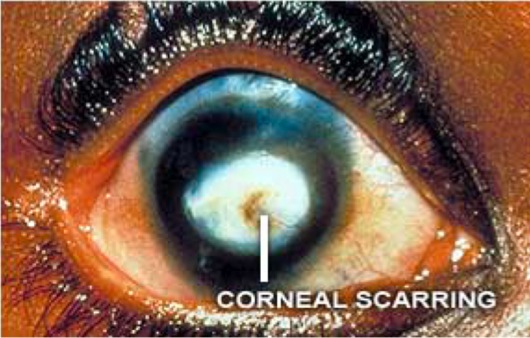This child is going blind as a result of scaring to his cornea. Some 250,000 to 500,000 children in low-resource communities throughout Africa and the Indian subcontinent go blind each year from dietary deficiency of vitamin A. Severe deficiency causes irreversible corneal damage, leading to partial or total visual impairment. Startlingly, about half of these children die within a year of becoming blind – often due to associated protein-energy malnutrition and increased susceptibility to respiratory and diarrheal infections. Vitamin A deficiency also puts children especially increased risk for measles.
What can we do on behalf of children like this? Prevention of vitamin A deficiency includes breast feeding, promotion of vitamin A rich diets, food fortification with vitamin A, and vitamin A supplementation. In communities with vitamin A deficiency children age 6–59 months should receive two doses each year. Vitamin A supplementation is very inexpensive and effective. In 1997 alone, some 300,000 child deaths were prevented by vitamin A supplementation in developing countries. In the case of this child, unfortunately, corneal transplantation is likely the only option to prevent blindness.

